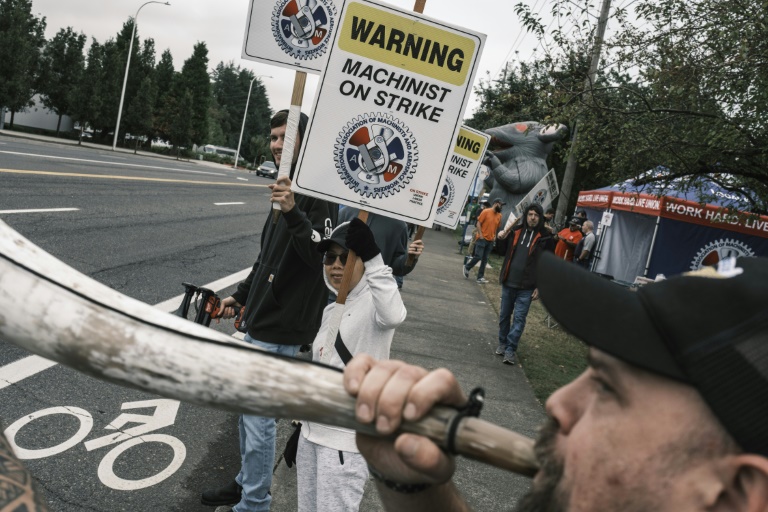The union for striking Boeing workers, the International Association of Machinists and Aerospace Workers (IAM), announced that talks with the aviation giant had “broke off” without agreement. This came after some 33,000 US employees walked out on September 13 following the rejection of a contract offer. The strike effectively shut down assembly plants for the 737 MAX and 777 aircraft. Although Boeing said it was prepared to meet with the union again, no further dates were scheduled at this time.
Boeing had previously announced its “best and final offer” in an attempt to end the strike, which included a 30 percent wage increase for striking workers and reinstating an annual bonus. However, the IAM felt that the proposal did not go far enough. The union had engaged in discussions with Boeing and mediators of the Federal Mediation and Conciliation Service (FMCS) but did not make progress on key issues such as the pension plan. Boeing remained firm in its stance to not unfreeze the defined benefit plan, which was a significant concern for some workers. Additionally, the company was not willing to engage substantively on other issues such as higher pay, quicker wage progression, and more paid time off.
The IAM’s message on Friday highlighted that the union was open to further talks with Boeing, either directly or through mediation. However, with no progress being made on crucial issues like the pension plan, the strike continued. The strike by the 33,000 workers in the Pacific Northwest region had disrupted Boeing’s operations and led to the closure of assembly plants for key aircraft models. Boeing expressed its commitment to negotiating in good faith and reaching an agreement as soon as possible, but the lack of movement on key issues remained a sticking point.
The end-of-day Friday deadline for striking workers to sign off on Boeing’s offer passed without resolution, as the proposal failed to address the concerns raised by the IAM. The union highlighted that the company’s refusal to budge on key issues like the pension plan was a major obstacle to reaching a resolution. The IAM emphasized the importance of fair compensation, benefits, and working conditions for its members, and expressed disappointment at the lack of progress in the negotiations with Boeing.
The strike by Boeing workers represented a significant challenge for both the company and its employees, as the standoff continued without a clear resolution in sight. The IAM remained steadfast in advocating for the rights and interests of its members, insisting on fair treatment and compensation. The failure to reach an agreement with Boeing highlighted the complexities and tensions inherent in labor negotiations, particularly in industries as vital and high-stakes as aerospace manufacturing. The future of the strike and its potential outcomes remained uncertain as both sides sought to find common ground on the key issues at stake.
In conclusion, the breakdown of talks between Boeing and the IAM underscored the challenges facing both parties in reaching a resolution to the strike. The refusal of Boeing to address key issues like the pension plan and other worker concerns continued to be a stumbling block in the negotiations. The strike by 33,000 Boeing workers had significant implications for the company’s operations and the livelihoods of its employees. As the standoff persisted, the union and the company remained at an impasse, with no clear path forward in sight. The ongoing strike highlighted the complexities and tensions inherent in labor relations, particularly in industries as critical as aerospace manufacturing. The future of the strike and the potential for resolution remained uncertain as both sides grappled with finding a mutually acceptable agreement.


